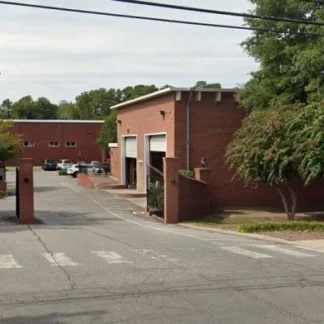Substance Abuse Treatment and Recidivism Reduction - STARR
Substance Abuse Treatment and Recidivism Reduction - STARR is a Non-Profit rehab...
Triangle Residential Options for Substance Abusers is a facility located in Durham, NC. Triangle Residential Options for Substance Abusers specializes in the treatment of mental health and substance abuse.
TROSA is an innovative, multi-year residential program that enables substance abusers to be productive, recovering individuals by providing comprehensive treatment, work-based vocational training, education, and continuing care.
TROSA and TROSA staff members have been recognized nationally, regionally, and locally for their commitment to the community. TROSA counts also with four different social enterprises: moving & storage, lawn care, Thrift store, and tree lots.
Contact us for more information: (919) 419-1059

Connect with Triangle Residential Options for Substance Abusers by calling their admissions team directly.
(919) 419-1059 Website Get DirectionsThe Substance Abuse and Mental Health Services Administration (SAMHSA) is a branch of the U.S. Department of Health and Human Services. Established in 1992 by congress, SAMHSA's mission is to reduce the impact of substance abuse and mental illness on American's communities.
SAMHSA Listed: Yes
In individual therapy, a patient meets one-on-one with a trained psychologist or counselor. Therapy is a pivotal part of effective substance abuse treatment, as it often covers root causes of addiction, including challenges faced by the patient in their social, family, and work/school life.
Trauma therapy addresses traumatic incidents from a client's past that are likely affecting their present-day experience. Trauma is often one of the primary triggers and potential causes of addiction, and can stem from child sexual abuse, domestic violence, having a parent with a mental illness, losing one or both parents at a young age, teenage or adult sexual assault, or any number of other factors. The purpose of trauma therapy is to allow a patient to process trauma and move through and past it, with the help of trained and compassionate mental health professionals.
Trauma therapy addresses traumatic incidents from a client's past that are likely affecting their present-day experience. Trauma is often one of the primary triggers and potential causes of addiction, and can stem from child sexual abuse, domestic violence, having a parent with a mental illness, losing one or both parents at a young age, teenage or adult sexual assault, or any number of other factors. The purpose of trauma therapy is to allow a patient to process trauma and move through and past it, with the help of trained and compassionate mental health professionals.
Substance Abuse Treatment and Recidivism Reduction - STARR is a Non-Profit rehab...
Freedom House Recovery Center - Durham Center Access offers outpatient treatment...
Youth Extensions – Durham is a private rehab located in Durham, North Carolina. ...
Carolina Community Support Services is a private rehab located in Durham, North ...